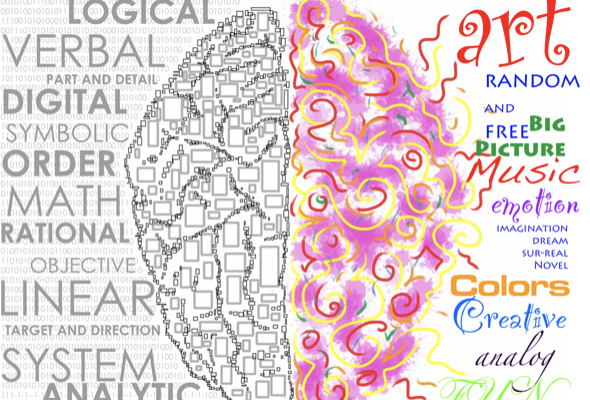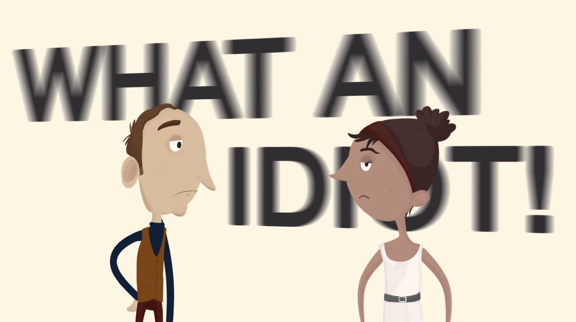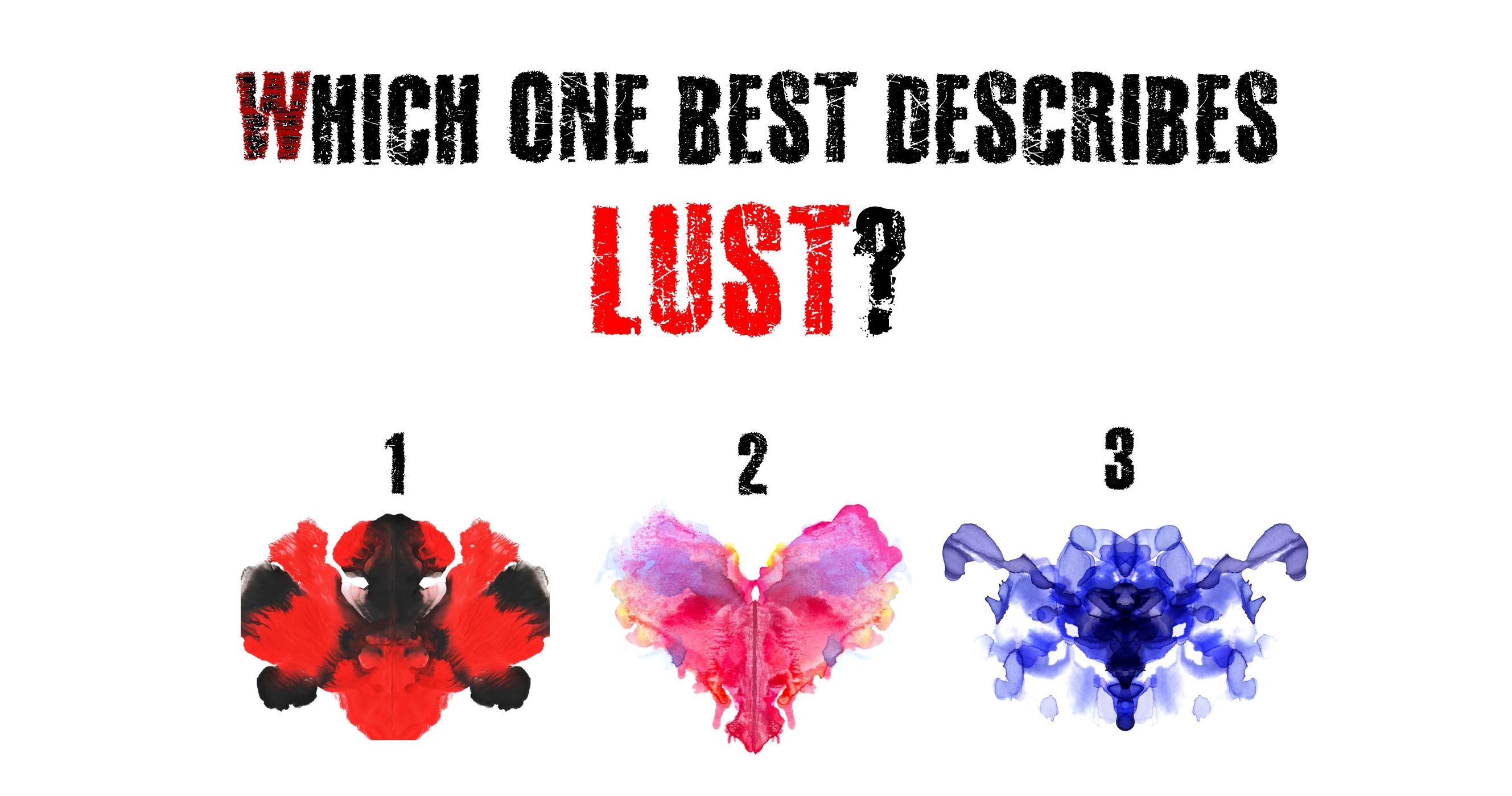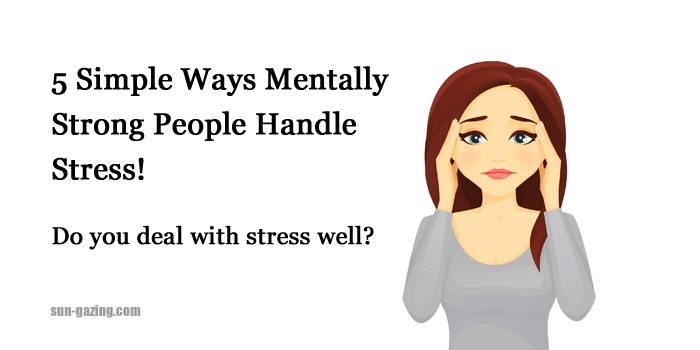Psychologists Say There Are 9 Different Kinds Of Intelligence. What Type Do You Have?

image via – shutterstock.com
If you’re a psychologist, professor, and researcher at one of the world’s most prestigious universities then you’re likely very intelligent. Howard Gardner is all of that and happens to work at Harvard University’s Graduate School of Education where he studies, of all things, intelligence.
Over the years he’s done brain research and interviewed all sorts of people, from geniuses and prodigies to victims of stroke and those with autism. His work eventually led him to develop the theory of Multiple Intelligences (MI Theory for short) which challenged traditional beliefs and definitions concerning what intelligence means.
Traditionally, intelligence is viewed as a fixed amount of cognitive capacity that people are born with. It consists of only logic and language abilities, and a person’s intelligence level can’t be changed over their lifetime. Gardner’s MI Theory stands in direct contrast.
Instead, he posits that individuals have different amounts, abilities, and unique combinations that can be changed and improved upon throughout their lifetime. The most distinctive aspect of his theory is that instead of there being only 2 types of intelligence, there are nine.
These 9 types directly relate to the various ways in which people interact with the word and environment around them. When Garder’s theory is applied to the classroom level a child’s strongest intelligence is first figured out. Then a teacher can more effectively reach and teach different that child in accordance with their intelligence. The nine intelligences are as follows:
1) Verbal/Linguistic- people who display good reading, writing, speaking, listening, memorization, and other language related skills. Students with these abilities are successful in most classroom settings because traditional teaching methods cater to these strengths.
2) Mathematical/Logical- this type of intelligence has to do with numbers, logic, reasoning, abstract and critical thinking. Those who more easily pick up on the underlying causes and principles of patterns and sequences also do well in traditional teaching settings.
3) Visual/Spatial- people who learn visually and spatially better understand maps, tables, charts, graphs, illustrations, and puzzles. They are often good at art and learn better by seeing things which helps them to understand and grasp concepts.
4) Musical/Rhythmic- people who are sensitive to different aspects of sound tend to learn well through music. They have an ear for tone, rhythm, meter, melody, pitch, and often excel at musical endeavors like singing, composing music and playing instruments. Traditional education doesn’t suit them well.
5) Bodily/Kinesthetic- this area relates to those who learn best through hands on activities like games, building stuff, and moving around. Jobs that require more physical activity are best suited for people with bodily-kinesthetic intelligence and athletes, soldiers, builders, surgeons often display it. Kids who learn this way are often seen as hyper and overactive, they don’t fit well traditional classroom settings.
6) Intrapersonal- people who are self-reflective and inwardly focused on their ideas, values, and feelings are this type of intelligent. From the outside they appear reserved, yet they are very intuitive and have a deep understanding of their own self worth. They learn best by taking information and examining how it relates to themselves.
7) Interpersonal- people who are talkative, outgoing, social, and empathetic learn best in groups or with partners. They are better able to sense others feelings, moods, and motivations and can thus connect more easily and better with people. They often excel at discussions and enjoy long conversations. People with high interpersonal intelligence make good managers, politicians, teachers, and salespeople.
8) Naturalist- this type of intelligence has to do with the natural world and those who see, pick up on, and understand various types of flora and fauna. People who love animals, gardening, and exploring nature, and who can relate information to their natural surroundings, have natural intelligence.
9) Existentialist- this type is related to philosophy. People who are deep thinkers and who question everything about existence are existentially intelligent. They pose questions such as “why are we here” and “what is our purpose” and are related to the possibility of additional types of intelligences that are spiritual or religious oriented.
Please Share This With Your Family and Friends
These 4 Destructive Behaviors Will Ruin Your Relationship

image via – youtube.com
People get married with every intention of staying so; they are “in love” and often push away early signs of conflict in the relationship before marriage, because of the “halo” of being in love. You may hear couples report that ‘everything changed once we got married’. This, in fact, is probably not true; the precursor for destructive patterns usually exist before getting married, but are ignored in the name of love.
All relationships have conflict, because two separate people can’t always get along. It is not the conflicts themselves that predict whether relationships will survive, according to Dr. John Gottman, rather it is how couples “manage” these conflicts.
He uses the word “manage” rather than “resolve”, because his research has shown that relationship conflict is normal and management can be a bright spot in the health and future of a marriage.
He has identified what he calls “The Four Horsemen of the Apocalypse” of a relationship. They are highlighted in the video you are about to watch below, as well as the antidotes for these relationship killers. These are four destructive patterns of communication which denigrate your partner, and over time will destroy the relationship, if not corrected.
His studies have allowed him to predict with 90% accuracy whether a marriage will end in divorce, by assessing whether these “Four Horsemen” behaviors dominate a relationship. The first of the “Four Horsemen” is CRITICISM, which attacks the character of your partner rather than communicating a complaint about his/her behavior that troubles you.
Criticisms are characterized by statements such as “you always” and “you never”. The ANTIDOTE for CRITICISM is to change the accusatory modality into “I” statements, such as: “I’m feeling sad about what we talked about before. Can we please talk about it again?” Making the “I” statement allows for the possibility of managing the problem rather than further escalating it into an attack that says, in essence, ‘if YOU didn’t do this than I would be happy’.
Criticism, or accusation, yields the second of the “Four Horsemen”, which is DEFENSIVENESS. If one’s character is attacked, the natural human reaction is to ward off the hurt by protecting oneself. It often results in statements such as: “How dare you talk to me like that” or “I did nothing wrong, it’s you who has a problem!” Getting defensive when your character has been criticized is a normal human reaction.
When attacked we go into a “flight or fight” mode to get away from the emotional danger we are experiencing. If you can “stay still” enough after being criticized and act out of your adult self (as opposed to a scared child) there is hope for managing the conflict.
Therefore, the ANTIDOTE for DEFENSIVENESS is to ACCEPT RESPONSIBILITY for a part of the conflict. After all, the saying “it takes two to tango”, didn’t come from nowhere. If there is a conflict between two people who love each other, the chances are good that each person has a part in it.
So instead of responding to the corrosiveness of criticism with “you’re the one who is always late…”, try a version of: “maybe I do start getting ready too late…I’ll try to…”. Taking responsibility for your part in a conflict can help to avoid the most corrosive of the “Four Horsemen”, CONTEMPT.
You may have heard that using sarcasm, (as clever as it may sound), is a relationship killer. Contempt is born out of criticism and defensiveness; it is a person’s attempt to falsely elevate oneself as being superior to the other by using hostile humor, cynicism, name-calling, eyerolling and mockery.
These behaviors are the most dangerous of the “horsemen”, as it displays a complete disregard of your partner; in and of itself, contempt is the greatest predictor of divorce. The ANTIDOTE for CONTEMPT is building a relationship that honors the other, by showing respect and appreciation for the best of what your partner brings to the table.
If this “culture of respect” has been nurtured throughout the conflicts that arise, chances are you and your partner will not have to experience the “relationship killer”, of contempt. If things have gone too far and your conflicts have turned into battles, the final one of the four “horsemen” will be the last straw, STONEWALLING.
This will occur when one person just cuts off, stops listening and withdraws. The ANTIDOTE for STONEWALLING is “physiological self-soothing”. Gottman says that removing oneself from the situation before exploding or imploding (stonewalling) is letting your partner know that you are on overload and need a break.
This allows both of you to have the adrenaline from fighting subside, let your body return to a state of relaxation for at least 20 minutes, before coming back to each other in an attempt to manage your conflict without continuing to resort to the “Four Horsemen”.
Neither pretending that conflicts don’t exist, nor beating one’s partner into emotional submission will result in a friendship that is key to a healthy relationship. Learning to implement the antidotes to these “Four Horsemen of the Apocalypse” is well-summarized in the video you are about to watch.
Please SHARE these important relationship tools with your friends and family
This Ink-Blot Test Will Reveal Your Biggest Fear In Life

image via – playbuzz.com
Fear is an emotion that every single one of us has experienced at many points in our lives. It’s a natural reaction to feel afraid and no matter what you call it; dread, horror, alarm, terror, panic, distress, fright, or threatened, it’ll always have a negative connotation. However, not all fears are bad and it’s actually quite healthy to feel afraid every now and then.
For most people, things like creepy crawlies or heights freak them out. According to various surveys on the topic the most common fears and phobias have to do with snakes, spiders, cockroaches, public speaking, needles, tight spaces, flying, dogs, water, germs, and death. While people can be afraid of virtually anything and everything, they can only fear on thing the absolute most.
What are you the most afraid of in this world? Put another way, what’s the one singular thing, thought, or idea that is truly capable of filling your mind, body, and soul with dread? No one likes to admit it, yet we all have to face what it is that we fear the most. While it’s natural to instinctively repress and avoid the unpleasant thoughts, we eventually need to deal with it and what better way to do just that than with some basic psychology!
This quiz uses ink-blot images to draw out and assess your deepest, darkest subconscious fears and thoughts. What you end up seeing in each picture ultimately depends on your perception of the world. In turn, part of what molds and shapes your interpretation of all the things that you see and come across in life is your unconscious mind.
It’s usually inaccessible, which is why psychologists have developed tests like the one featured here to draw out and uncover the ideas and information it holds deeply hidden. Projective tests, which include ink-blot tests, are psychological tools that use images, words, or situations to analyze how people respond to them.
An individual is assessed in terms of the unconscious personality traits they exhibit towards the stimulus, in this case the image, and from their response hidden emotions are brought to light. In other words, how you view the ink-blots here will reveal what you fear the most.
With that in mind, are you ready to face your biggest fear? Take this projective ink-blot quiz now and see whether or not you agree with the end results. Enjoy!
Please SHARE This With Family and Friends
Choose An Eye And See What It Reveals About You
It has often been said that “the eyes are the windows to the soul” in that they can reveal all sorts of things about a person. Think about it, when you gaze into someone’s eyes you can tell if they are happy, upset, mad, sad, indifferent, or whatever emotions they may be feeling at the moment. Our eyes are capable of conveying unspoken messages and even if we try to hide certain things, our eyes can end up betraying us.
There are also many different types of eyes that extend beyond the physical ones on our bodies, from the evil eye to the third eye, the seeing eye, the invisible eye, and the mind’s eye. These concepts are all linked to our subconscious awareness and they’re believed to give us extra-sensory abilities that extend beyond what our ordinary eyes are capable of perceiving.
Depending on what you believe and how you view the world, the eyes can mean many things, and it all varies from person to person. They are part of what makes us unique and they affect how we perceive the world around us. They also play a major role in our decision making and the choices we choose can offer further insight into who we are deep down inside. As basic and simple as making choices may seem, the reasons behind them are more involved and complex than you’d imagine. Life experiences, our past, our preferences, emotions, and countless other variables come into play.
This short visual quiz combines eye types with the choice you make to explore and reveal things about you and your personality that you may or may not be aware of. Tests such as this one are specially designed to uncover aspects of a person’s character, so try it out! All that you need to do is pick the one eye image that you are most drawn to and that is most appealing. Have fun, enjoy, and see if you agree with what your eye choice says!
Please Share This With Family and Friends To See What Eye They Pick!
What Is Your Most Dominant Personality Trait According To This Unique Color Blot Test? Find Out.
 image via – playbuzz.com
image via – playbuzz.com
It’s something that everybody has but it often differs dramatically from person to person. Others judge us off of it and are either drawn towards or repelled away from us because of it. Over time and throughout our lives it can be changed, cultivated, and grown. What is it? Personality!
The whole concept of personality is a loaded one. Each of our distinctly individual personalities is a complex mash up of all the many different characteristics, traits, quirks, and qualities that make us who we are. Some people have outgoing and social personality types whereas others fall on the shy side. There are funny people best known for their awesome sense of humor and serious brainiacs who are unbelievably intelligent. In between all of those extremes are the countless other types of colorful personalities.
Without personality as we know it, life would be boring and predictable. We’d basically all be extremely dull copies of each another, devoid of the wide array of emotions, experiences, and feelings that make the human experience so meaningful and diverse. Those things are what help shape our perspective of the world and everything surrounding us. As such, personality plays a huge role in the way we interpret situations and people and how we make decisions.
While the term personality is a blanket word for every attribute that makes us who we are, there can only be one dominant trait that stands out above all the rest. That is the personality trait that factors into your behaviors, perspectives, and interactions the heaviest and is what, in a sense, defines you.
This color blot quiz was designed to draw out your strongest, most dominant personality characteristic. It uses your visual perception and takes into account how you interpret a series of specific images to figure out your strongest trait. It’s based off of the Rorschach inkblot tests and by choosing the one word which best describes the colorful inkblot shown in each image you can easily uncover your dominant personality trait. Try it now and see if you agree with the results you get!
Please SHARE This With Family and Friends To See What Their Dominant Personality Trait Is
5 Ways People Who Are Mentally Strong Deal With Chronic Stress and Stressful Situations Effectively
From the day we are born until the day we take our last breath, we are forced to deal with stress. It’s inevitable that our entire lives are marked by periods of strain and tension. While some stress is actually good and healthy for us, too much is bad and can lead to health problems.
If you’ve ever experienced the deeply unpleasant feelings, thoughts, and emotions of dread and unease over future situations or things beyond your control, then you have felt the heavy weight of stress dragging you down. Many cases of physical and mental burnout, depression, addiction, high blood pressure and other heart issues stem directly from elevated levels of chronic, out of control stress. In fact, recently the most common type of mental health illness in America was identified by The National Institute of Mental Health as anxiety disorders. Stress is what leads directly to anxiety and it’s often cited as thee number one trigger of people’s generalized anxiety.
If you can’t find a way to balance and deal with all the stuff that gets thrown your way then you could be headed towards a breaking point, if you haven’t already arrived there yet! Instead of allowing things to get out of control and continuing to suffer, there are techniques to properly deal with the daily stresses you come across. Here are some of the ways in which mentally strong people handle and compartmentalize stress. Check them out because some of these could really make a big difference in your life:
1. They Think Positively:
If you tell yourself you can do this or that you’ve got it, then you’re setting yourself up for success. Thinking positively puts you in the right mindset to tackle stressful things head on. When you do the opposite and think negatively, by telling yourself you can’t do something, then you’re essentially setting yourself up for failure before you’ve even given it a try. Telling yourself that you are strong, tough, and nothing can stop you will only help you to overcome what you need to in the end.
2. They Find A Solution:
Rather than just avoiding or running away from stressful events, interactions, or problems, mentally tough people will face it head on and work to eliminate it from their life. Depending on the source of your stress, this could mean a number of different things. You can work towards finding common ground with someone you don’t get along with or stop procrastinating over something know you have to get done but keep pushing off. Solving your issues means not having to deal with or think about them again!
3. They Anticipate Stressful Events:
Mental fortitude is partly built upon knowing that things in life don’t always go as expected and that because of this a back up plan may be necessary. By keeping your options open and being flexible you can get past the bumps and road blocks that pop up along the way, and thus avoid a lot of additional and unnecessary stress. Smooth sailing starts with anticipating the weather, as does a smooth journey in life means anticipating things and events beyond your control.
4. They Think Ahead Time-Wise And Plan Accordingly:
The majority of the daily stresses we encounter comes from balancing our schedules. When you have to be at work, a meeting, dinner, or school to pick up your kids at a certain time, plus do a million other things in-between, it can easily stress anyone out! When you find that you’re overloaded and stretched thin, it’s time to sit down and make a schedule. Allow yourself extra time in-between the places you have to go or things you have to do so that if you’re running late for whatever reason, it’s okay. Schedules help us keep track of all the major and minor things we have to get done and if you stick with them, your life will instantly be all the less stressful.
5. They Employ A Number Of Different Stress Management Techniques:
There are a variety of stress management tools and techniques that people use to help them alleviate stress. Some do yoga or meditate, take a walk, exercise, and just keep moving to stop them from becoming paralyzed by stress. Others make lists, brainstorm ideas, take a break from whatever it is that’s bothering them, talk it out with trusted friends and colleagues, or squeeze a good old fashioned stress-ball. There’s an endless amount of strategies and ways out there to help you overcome stress, you just need to try them out and see what works for you.
Check out the video below for some more stress management techniques
Please SHARE This With Family and Friends






